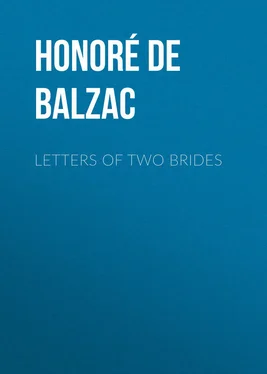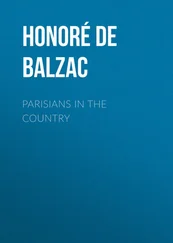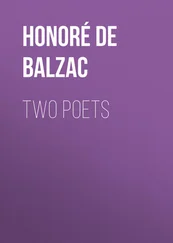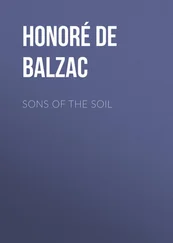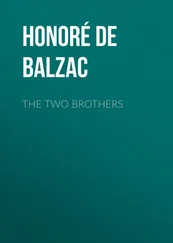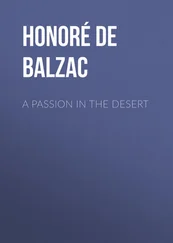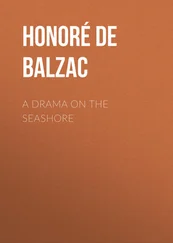Honoré Balzac - Letters of Two Brides
Здесь есть возможность читать онлайн «Honoré Balzac - Letters of Two Brides» — ознакомительный отрывок электронной книги совершенно бесплатно, а после прочтения отрывка купить полную версию. В некоторых случаях можно слушать аудио, скачать через торрент в формате fb2 и присутствует краткое содержание. Жанр: literature_19, foreign_antique, foreign_prose, на английском языке. Описание произведения, (предисловие) а так же отзывы посетителей доступны на портале библиотеки ЛибКат.
- Название:Letters of Two Brides
- Автор:
- Жанр:
- Год:неизвестен
- ISBN:нет данных
- Рейтинг книги:5 / 5. Голосов: 1
-
Избранное:Добавить в избранное
- Отзывы:
-
Ваша оценка:
- 100
- 1
- 2
- 3
- 4
- 5
Letters of Two Brides: краткое содержание, описание и аннотация
Предлагаем к чтению аннотацию, описание, краткое содержание или предисловие (зависит от того, что написал сам автор книги «Letters of Two Brides»). Если вы не нашли необходимую информацию о книге — напишите в комментариях, мы постараемся отыскать её.
Letters of Two Brides — читать онлайн ознакомительный отрывок
Ниже представлен текст книги, разбитый по страницам. Система сохранения места последней прочитанной страницы, позволяет с удобством читать онлайн бесплатно книгу «Letters of Two Brides», без необходимости каждый раз заново искать на чём Вы остановились. Поставьте закладку, и сможете в любой момент перейти на страницу, на которой закончили чтение.
Интервал:
Закладка:
So you know all that lies before you; you have nothing left to hope, or fear, or suffer? And supposing the glorious morning rises which will bring you face to face with the man destined to rouse you from the sleep into which you are plunging!.. Ah! a cold shiver goes through me at the thought!
Well, at least you have a friend. You, it is understood, are to be the guardian angel of your valley. You will grow familiar with its beauties, will live with it in all its aspects, till the grandeur of nature, the slow growth of vegetation, compared with the lightning rapidity of thought, become like a part of yourself; and as your eye rests on the laughing flowers, you will question your own heart. When you walk between your husband, silent and contented, in front, and your children screaming and romping behind, I can tell you beforehand what you will write to me. Your misty valley, your hills, bare or clothed with magnificent trees, your meadow, the wonder of Provence, with its fresh water dispersed in little runlets, the different effects of the atmosphere, this whole world of infinity which laps you round, and which God has made so various, will recall to you the infinite sameness of your soul's life. But at least I shall be there, my Renee, and in me you will find a heart which no social pettiness shall ever corrupt, a heart all your own.
Monday.
My dear, my Spaniard is quite adorably melancholy; there is something calm, severe, manly, and mysterious about him which interests me profoundly. His unvarying solemnity and the silence which envelops him act like an irritant on the mind. His mute dignity is worthy of a fallen king. Griffith and I spend our time over him as though he were a riddle.
How odd it is! A language-master captures my fancy as no other man has done. Yet by this time I have passed in review all the young men of family, the attaches to embassies, and the ambassadors, generals, and inferior officers, the peers of France, their sons and nephews, the court, and the town.
The coldness of the man provokes me. The sandy waste which he tries to place, and does place, between us is covered by his deeprooted pride; he wraps himself in mystery. The hanging back is on his side, the boldness on mine. This odd situation affords me the more amusement because the whole thing is mere trifling. What is a man, a Spaniard, and a teacher of languages to me? I make no account of any man whatever, were he a king. We are worth far more, I am sure, than the greatest of them. What a slave I would have made of Napoleon! If he had loved me, shouldn't he have felt the whip!
Yesterday I aimed a shaft at M. Henarez which must have touched him to the quick. He made no reply; the lesson was over, and he bowed with a glance at me, in which I read that he would never return. This suits me capitally; there would be something ominous in starting an imitation Nouvelle Heloise . I have just been reading Rousseau's, and it has left me with a strong distaste for love. Passion which can argue and moralize seems to me detestable.
Clarissa also is much too pleased with herself and her long, little letter; but Richardson's work is an admirable picture, my father tells me, of English women. Rousseau's seems to me a sort of philosophical sermon, cast in the form of letters.
Love, as I conceive it, is a purely subjective poem. In all that books tell us about it, there is nothing which is not at once false and true. And so, my pretty one, as you will henceforth be an authority only on conjugal love, it seems to me my duty – in the interest, of course, of our common life – to remain unmarried, and have a grand passion, so that we may enlarge our experience.
Tell me every detail of what happens to you, especially in the first few days, with that strange animal called a husband. I promise to do the same for you if ever I am loved.
Farewell, poor martyred darling.
XI. MME. DE L'ESTORADE TO MLLE. DE CHAULIEU La Crampade
Your Spaniard and you make me shudder, my darling. I write this line to beg of you to dismiss him. All that you say of him corresponds with the character of those dangerous adventurers who, having nothing to lose, will take any risk. This man cannot be your husband, and must not be your lover. I will write to you more fully about the inner history of my married life when my heart is free from the anxiety your last letter has roused in it.
XII. MLLE. DE CHAULIEU TO MME. DE L'ESTORADE February
At nine o'clock this morning, sweetheart, my father was announced in my rooms. I was up and dressed. I found him solemnly seated beside the fire in the drawing-room, looking more thoughtful than usual. He pointed to the armchair opposite to him. Divining his meaning, I sank into it with a gravity, which so well aped his, that he could not refrain from smiling, though the smile was dashed with melancholy.
"You are quite a match for your grandmother in quick-wittedness," he said.
"Come, father, don't play the courtier here," I replied; "you want something from me."
He rose, visibly agitated, and talked to me for half an hour. This conversation, dear, really ought to be preserved. As soon as he had gone, I sat down to my table and tried to recall his words. This is the first time that I have seen my father revealing his inner thoughts.
He began by flattering me, and he did not do it badly. I was bound to be grateful to him for having understood and appreciated me.
"Armande," he said, "I was quite mistaken in you, and you have agreeably surprised me. When you arrived from the convent, I took you for an average young girl, ignorant and not particularly intelligent, easily to be bought off with gewgaws and ornaments, and with little turn for reflection."
"You are complimentary to young girls, father."
"Oh! there is no such thing as youth nowadays," he said, with the air of a diplomat. "Your mind is amazingly open. You take everything at its proper worth; your clear-sightedness is extraordinary, there is no hoodwinking you. You pass for being blind, and all the time you have laid your hand on causes, while other people are still puzzling over effects. In short, you are a minister in petticoats, the only person here capable of understanding me. It follows, then, that if I have any sacrifice to ask from you, it is only to yourself I can turn for help in persuading you.
"I am therefore going to explain to you, quite frankly, my former plans, to which I still adhere. In order to recommend them to you, I must show that they are connected with feelings of a very high order, and I shall thus be obliged to enter into political questions of the greatest importance to the kingdom, which might be wearisome to any one less intelligent than you are. When you have heard me, I hope you will take time for consideration, six months if necessary. You are entirely your own mistress; and if you decline to make the sacrifice I ask, I shall bow to your decision and trouble you no further."
This preface, my sweetheart, made me really serious, and I said:
"Speak, father."
Here, then, is the deliverance of the statesman:
"My child, France is in a very critical position, which is understood only by the King and a few superior minds. But the King is a head without arms; the great nobles, who are in the secret of the danger, have no authority over the men whose co-operation is needful in order to bring about a happy result. These men, cast up by popular election, refuse to lend themselves as instruments. Even the able men among them carry on the work of pulling down society, instead of helping us to strengthen the edifice.
"In a word, there are only two parties – the party of Marius and the party of Sulla. I am for Sulla against Marius. This, roughly speaking, is our position. To go more into details: the Revolution is still active; it is embedded in the law and written on the soil; it fills people's minds. The danger is all the greater because the greater number of the King's counselors, seeing it destitute of armed forces and of money, believe it completely vanquished. The King is an able man, and not easily blinded; but from day to day he is won over by his brother's partisans, who want to hurry things on. He has not two years to live, and thinks more of a peaceful deathbed than of anything else.
Читать дальшеИнтервал:
Закладка:
Похожие книги на «Letters of Two Brides»
Представляем Вашему вниманию похожие книги на «Letters of Two Brides» списком для выбора. Мы отобрали схожую по названию и смыслу литературу в надежде предоставить читателям больше вариантов отыскать новые, интересные, ещё непрочитанные произведения.
Обсуждение, отзывы о книге «Letters of Two Brides» и просто собственные мнения читателей. Оставьте ваши комментарии, напишите, что Вы думаете о произведении, его смысле или главных героях. Укажите что конкретно понравилось, а что нет, и почему Вы так считаете.
